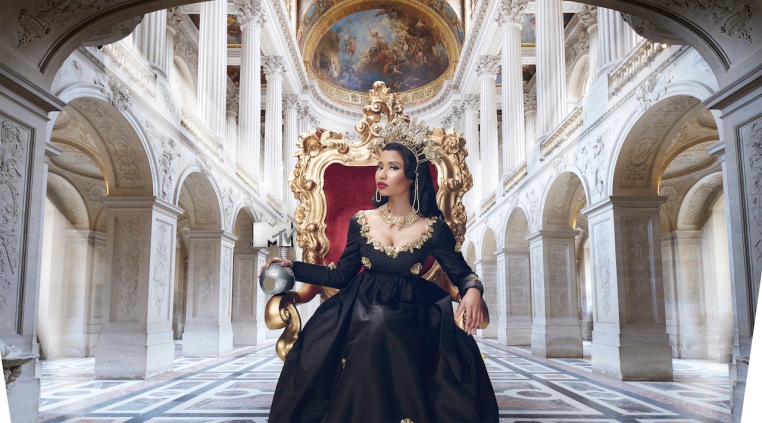Tags
 Nicki Minaj routinely addresses misogyny in the entertainment industry and pipes up about double standards against women. Her method may be unorthodox—the hyper-sexualized imagery could serve as distractions to her message, but the Queens-bred rapper constantly cheerleads for women, not in traditional activism, but on billboard charts, in boardrooms and in interviews.
Nicki Minaj routinely addresses misogyny in the entertainment industry and pipes up about double standards against women. Her method may be unorthodox—the hyper-sexualized imagery could serve as distractions to her message, but the Queens-bred rapper constantly cheerleads for women, not in traditional activism, but on billboard charts, in boardrooms and in interviews.
A lot of what people don’t understand about the music is that it’s a business. So if you come into it thinking that it’s all about just being cute and getting some attention—I didn’t do this for attention. I didn’t do it for any reason other than I wanted to explore the business and take it to where the guys took it. As a businesswoman.” —from her into with DJ Vlad TV.
Nicki Minaj recognizes that the industry is scared of letting women rise above men, and she seeks to even the playing field.
Nicki had the hottest verse in Kanye West’s “Monster”, with her first lines going “Pull up in the monster automobile, gangsta/ With a bad b*tch that came from Sri Lanka/ I’m in that Tonka color of Willy Wonka/You could be the king but watch the queen conquer”, which became an anthem for women across the world. She also calls out critics who disdain her and refer to her as inexperienced and simply clueless in her lines: “So let me get this straight, wait, I’m the rookie?/ But my features and my shows ten times your pay?/ 50K for a verse, no album out/ Yeah, my money’s so tall that my Barbiez got to climb it”.
“When I am assertive, I’m a b*tch. When a man is assertive, he’s a boss. He bossed up. No negative connotation behind ‘bossed up.’ But lots of negative connotation behind being a ‘b*tch.'” —Nicki in MTV’s My Time Now documentary
Nicki compared female bosses’ treatment and the taboo that they have on them to men and dismantled the “b*tch” title that’s bestowed on powerful women.
“I handle my business and also I speak up for myself. But if I was not like this, so many people would’ve taken advantage of me. I took a lot of sh*t from people, from men who didn’t want me to realize my own worth, who didn’t want me to know the truth about who I was and how good I was.” —Nicki Minaj Vs. Hot 97’s Peter Rosenberg
While going toe to toe with Rosenberg—the Hot 97 personality who criticized her pop persona and single “Starships”—Nicki showed that women shouldn’t have to diminish themselves or be less outspoken for the sake of a man.
“I always reference [Queen Latifah] when I talk about female rappers who’ve paved the way in terms of a businesswoman, mogul and just all around entertainer, and to be sitting here doing your show is just a great moment in hip-hop.” —Nicki Minaj on The Queen Latifah Show
One of the cornerstones of feminism is supporting other women. Nicki’s hat-tip to Queen Latifah for creating opportunities for other rising female MCs championed just that.
Nicki Minaj is a voice for women, for black women, and for heavy women. She has paved the way with talent and force and many others will follow in her footsteps.

Pingback: The Pinkprint | heck with them!
Reblogged this on megsandmonkeys and commented:
Wow. This blog hits it hard. The author has taken Nicki Minaj, a popular female rapper, and personifies her as such a influential figure for women everywhere. Many people hear her music and automatically assume that the lyrics are “hyper-sexualized” as the author phrases it. Digging deeper into her music can help you understand the true meanings of the words she writes; talking personally about her abortion, explaining her strong ideals of feminism, and most importantly, standing up for herself. Nicki Minaj is a force to be reckoned with. Her music is powerful, and at the same time controversial. She may not seem like the orthodox feminist, that’s because she isn’t.
LikeLiked by 2 people